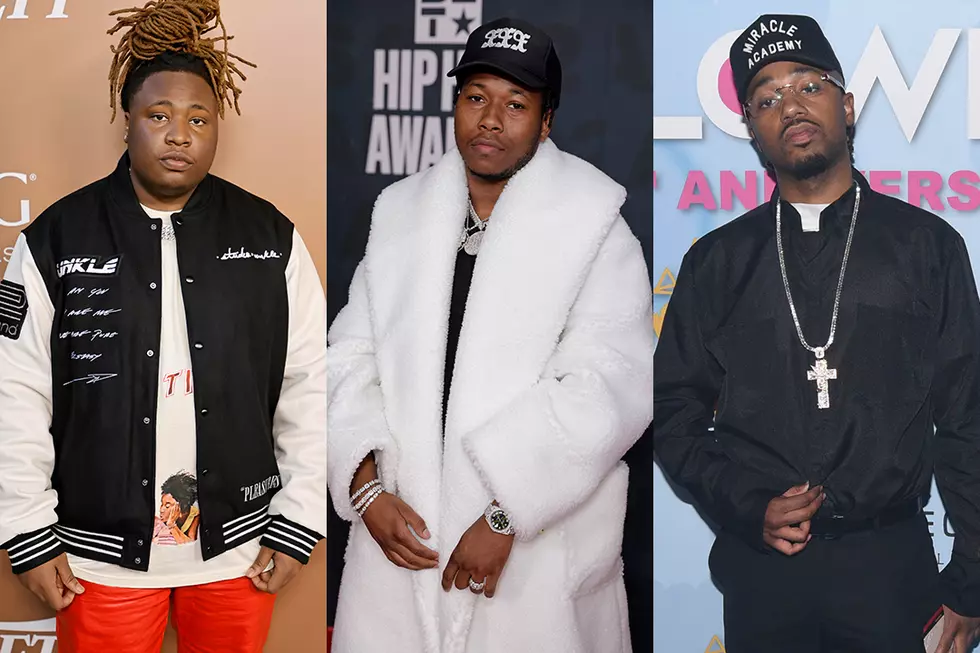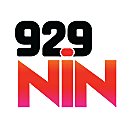
Are A.I. Hip-Hop Songs Dangerous? A Look at the New Wave Sparking Debate
The use of artificial intelligence has taken the rap game by storm seemingly overnight. With each passing day, more hip-hop songs have been surfacing that use the voices of some of the biggest names in the industry without those artists ever picking up a pen or stepping into the booth to record lyrics.
Songs created by A.I. technology have become an increasingly popular practice that, at least on some level, fulfills hip-hop heads' fantasies through dream collabs, covers of popular songs from deceased artists and entirely new compositions from rhymers who perhaps haven't dropped any fresh music of their own in quite some time. Last summer, virtual A.I. rapper FN Meka was signed to Capitol Records then dropped by the label following backlash for its creators having the A.I. artist rap lyrics using the N-word and perpetuating stereotypes in its visuals. The new wave of A.I. hip-hop songs brings up questions of whether they're dangerous to artists' livelihood, likeness and creativity.
Just within the past few weeks, hip-hop has heard A.I.-generated lyrics turned into songs from artists like Jay-Z, plus, Drake and The Weeknd, whose A.I. voices were used by TikTok creator Ghostwriter977 to create a song called "Heart On My Sleeve" all about Selena Gomez. An anonymous YouTuber allowed fans of The Notorious B.I.G. to listen to what the late icon would sound like via A.I. if he rapped Nas' 1996 classic, "The Message," bar for bar. A.I. technology has even provided a few laughs along the way with humorous deep fake versions of Ice Spice's "Munch (Feelin' U)" as it would sound if it were performed by Drake and Pop Smoke, respectively.
Even for a completely inexperienced songwriter, creating new lyrics for deep-fake songs can be easily accomplished by simply typing a few keywords into A.I. sites such as OpenAI's ChatGPT or These Lyrics Do Not Exist. With just a few clicks, the information provided is then used to automatically generate verses, pre-choruses and hooks. However, the ability to generate a song using an established artist's voice is much more complicated.
In speaking with CNN recently regarding the track "Heart On My Sleeve," which features A.I. versions of both Drake and The Weeknd, ABI Research analyst Michael Inouye shed some light on how the viral track could've been made.
“If music artists were involved, they could create the background music and the lyrics, and then the A.I. model could be trained with content from Drake and The Weekend to replicate their voices and singing styles,” Inouye told CNN. “A.I. could also have generated most of the song, lyrics and replicated the artists again based on the training data set and any prompts given to direct the A.I. model.”
A.I. technology developer Roberto Nickson recently hit up Twitter with a video of himself demonstrating just how easy it is to create an A.I. song once the technology itself is trained to generate an artist's vocal tone and inflections. Using Kanye West as an example, Nickson recorded a series of rhymes he penned himself from Ye's perspective.
After laying down the bars in his own studio over a "Kanye-type beat" Nickson found on YouTube, the software developer was able to apply a flawless-sounding version of Kanye's voice to the newly recorded song in just a couple of clicks. Roberto Nickson made note of the fact that "this is the worst A.I. will ever be" and that songs such as his will only get easier to create over time.
One of the earliest A.I.-driven songs to grab mainstream attention in early April featured Jay-Z's voice on a song by AllittA called "Savages." Hov's personal engineer, Young Guru, suggested that copyright laws be amended to "protect the rights of the artist" from having their voices used without permission. Young Guru shared his thoughts via Instagram.
"I’ve been trying to tell everyone that this is where we are now with AI," Guru shared. "For some reason this one got everyone’s attention. So what do we do. On one hand I’m well aware that you can’t stop technology. Once the genie is out of the box you can put him back in. On the other hand we have to protect the rights of the artist. Not only artist but everyone in society. People should not be able to take your Name, Image and Likeness without permission. We have to add the voice to this law. We have to learn from past mistakes. You would be a fool to chase every person that is going to do this. We learned that lesson with Napster. The only way I see to deal with it is to change the law. There are so many different opinions. We could change the United States law tomorrow but the internet is world wide. What a time we live in!!"
While artists like Hit-Boy, who lost his mind recently after hearing a computer-generated Kanye West rap the lyrics to Hit's song "2 Certified," seemingly embrace the new A.I. wave, others within the business are becoming increasingly concerned over what it could mean for the future of the art form and the industry that supports it.
After the aforementioned fugazi song from Drake and The Weeknd was forcibly removed from digital platforms across the internet by Universal Music Group immediately after going viral, a spokesperson for Universal Music Group offered up a statement to XXL. In explaining how artificial intelligence affects major record labels, the spokesperson gave some insight into why the label is currently asking popular streaming services such as Apple Music and Spotify to block A.I. companies from access to UMG's music. The label says the tech companies involved in A.I. are using copyrighted music to train their technology to capture the voices of mainstream artists in order to generate songs that they didn't write or record themselves.
"UMG's success has been, in part, due to embracing new technology and putting it to work for our artists–as we have been doing with our own innovation around AI for some time already," the statement reads. "With that said, however, the training of generative AI using our artists' music (which represents both a breach of our agreements and a violation of copyright law) as well as the availability of infringing content created with generative AI on DSPs, begs the question as to which side of history all stakeholders in the music ecosystem want to be on: the side of artists, fans and human creative expression, or on the side of deep fakes, fraud and denying artists their due compensation."
Even though the ability to use A.I. for music creation has been around for some time, it appears that the major players in the entertainment industry are struggling to keep up in the attempt to curve the use of their artists' likenesses.
Knowing that technology will continue to improve at a rapid rate, making it simpler for common users to replicate faux versions of music's most popular acts by the day, and with the exponential influx of A.I.-generated music recently, the teams behind the affected artists are scrambling to keep these deep fake songs suppressed but are doing so behind closed doors.
XXL reached out to representatives for Drake, Jay-Z, The Weeknd, Kanye West, Hit-Boy and Universal Music Group to get further statements on their artists' voices being mimicked by artificial intelligence. Those inquiries, as well as requests for comment from Ghostwriter997 and Roberto Nickson regarding the process of using A.I. to create songs from mainstream artists, were left unanswered.
The fact that the music industry is a new frontier currently serving as A.I.'s Wild West poses some interesting questions surrounding the ever-evolving technology. Is artificial intelligence a good thing that will ultimately allow artists to create music for their fans more efficiently or is it perhaps a negative byproduct of the internet age that will eventually become a complete detriment to creativity? Could rappers find themselves in precarious situations, because of A.I., in which they will need to defend themselves against things that they never even spoke on or wrote lyrics about to begin with?
While all of that is yet to be seen, artists, fans and industry insiders are finding themselves on both sides of the fence when it comes to computer-generated music, superficially songs that falsely feature the voices of popular stars. For example, Meek Mill praised Ghostwriter977's "Heart On My Sleeve" earlier this week in a since-deleted tweet calling for Drake and The Weeknd to hop on wax together once again. Drizzy himself, on the other hand, denounced the entire practice by sharing an A.I.-created audio clip of the Toronto MC's voice rhyming the lyrics to Ice Spice's "Munch (Feelin' U)" on Instagram. Drake accompanied the IG Story with the caption, "This is the final straw, A.I."
As the music industry attempts to pinpoint exactly how A.I.-generated songs will affect creativity as well as finances in the long run, artificial intelligence remains a polarizing trending topic within the hip-hop space.
See Rappers and Hip-Hop Artists Who Sold Their Publishing for Huge Payouts
More From 92.9 NiN










